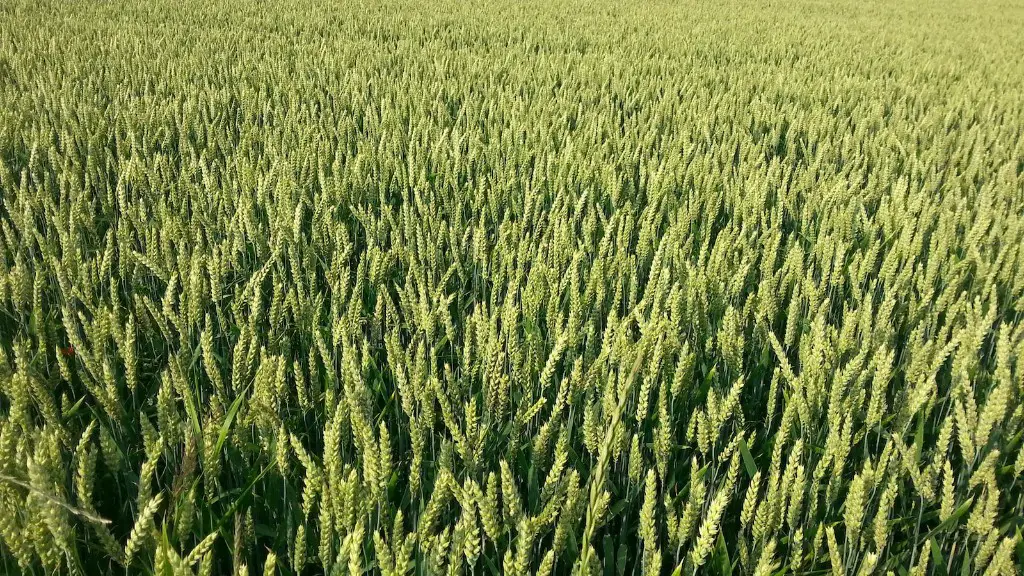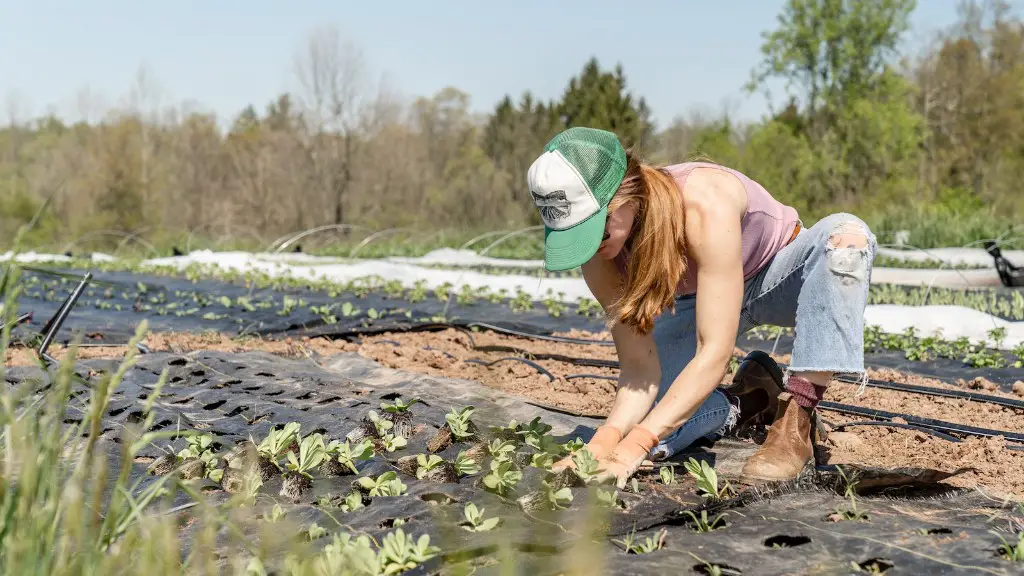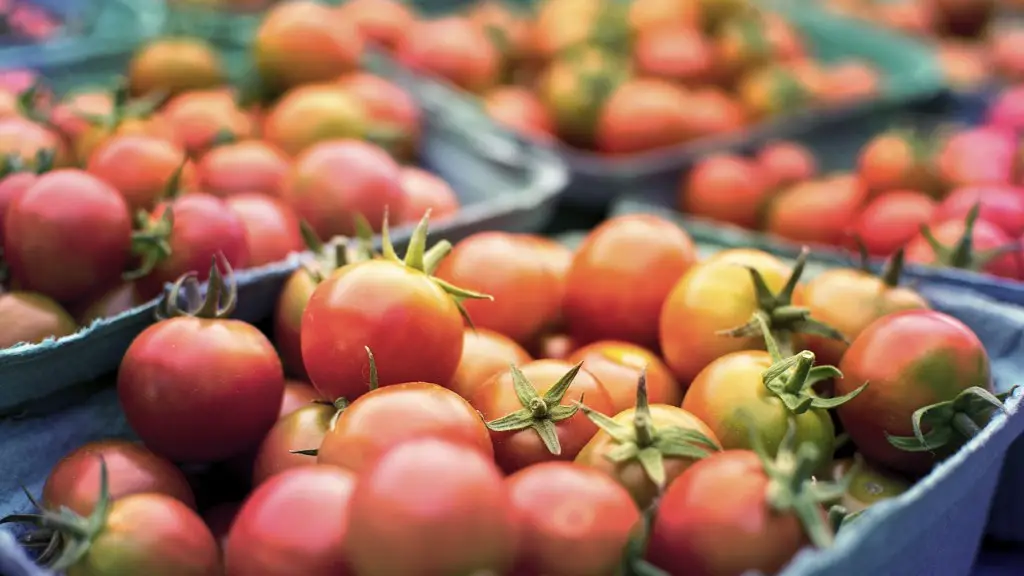Grading in agriculture is an essential process to ensure the safety and quality of produce. It ensures that farmers, food processors and distributors deliver quality products and materials to consumers while adhering to the highest standards of safety, quality and efficiency. Grading is done by an experienced, trained and certified agency representative who assesses the conformity of a given commodity to established standards for grade size, maturity and condition. The end goal is to make sure that only the product that meets regulatory requirements is shipped and sold.
For example, when assessing fruits and vegetables, the grader looks for disease, pest damage, color, maturity and size. They also inspect for foreign contaminants such as glass, stones and other debris, as well as other factors that affect safety and quality of the product. By assessing and classifying products, the grader ensures that only high-quality produce enters the market, thereby ensuring a safe and fairly traded product.
In many parts of the world, grading also ensures that producers receive a fair price for their harvest as the grader can judge the overall quality of the crop and set grades accordingly. By assessing and rating crops according to standard conventions, producers get an accurate estimate of their crop’s worth, enabling them to make financial decisions.
The process of grading is a complex one and takes into account various different factors. The grader needs to understand the commodity, take into account current market trends, evaluate the local growing conditions and be familiar with the grading criteria for the product in question. Graders must also be compassionate and patient as they work with farmers whose livelihoods are on the line.
In certain countries, grading is legally required. In the United States, for example, the Department of Agriculture has imposed specific regulations on certain products and requires that those products undergo a grading process before entering the market. This level of regulation ensures the quality of products, consumer safety and fair pricing. In other parts of the world, grading is not legally required, but is nonetheless an important part of ensuring product quality and reliability.
Grading in agriculture is essential to maintaining both consumer safety and fairness in food production and trading. It ensures that only safe and fairly traded products enter the market and helps producers receive a fair price for their produce. Grading is a complex process, requiring the expertise of a trained, certified grader and support from government regulation.
How Grading Works
Grading involves a system of assigning values or grades to products or crops according to their quality and condition. The grading process is conducted by a certified grader who is experienced in assessing the quality, safety and marketability of a certain commodity. Factors that the grader will consider when evaluating a crop include disease, pest damage, color, maturity, size, foreign contaminants and any other issues that affect the product’s condition, quality and safety.
As part of the grading process, the grader will assess the condition and quality of the product, assign grades and post a report for other interested parties. Graders will ensure that all grades are reliable, consistent and accurate according to relevant standards and regulations. After the grades are posted, the product is ready to enter the marketplace.
In some cases, the grading process also serves to help producers secure a fair price for their product, as the grader can judge the overall quality of the crop and assign grades accordingly. By rating products according to standard conventions, both buyers and sellers can receive an accurate estimate of the product’s worth.
For certain commodities, grading is legally mandated in order to maintain product quality and safety standards. Grading regulations vary from country to country and are implemented by a relevant agricultural governing body. In the United States, for example, the Department of Agriculture implements stringent grading regulations on certain products and requires that they undergo a grading process prior to entering the market.
Grading is an essential part of the agricultural process and helps promote the delivery of safe and fairly traded products to consumers. It helps ensure that buyers and sellers receive a fair price for their product, while also protecting consumers and promoting the stability of the market.
Why Grading Matters
Grading plays an important role in ensuring product quality and safety, fair pricing and ethical agricultural practices. Grading helps ensure that farmers, food processors and distributors deliver safe products to consumers. In certain countries, grading is legally required to prevent subpar products from entering the market. By assessing and rating products according to standard conventions and regulations, consumers can rest assured that the products they purchase are safe, high-quality and fairly-priced.
Grading is also essential for producers, as it helps ensure that they receive a fair price for their products. Grading also ensures that farmers have access to the exact same information when evaluating their crop. By assessing and classifying products, the grader helps ensure that producers receive an accurate assessment of their product’s value.
Grading helps promote ethical production and trading, as the grader assesses each product according to the same criteria, thereby helping to keep pricing fair and reasonable. It also helps farmers understand the value of their harvest, enabling them to make informed financial decisions.
Grading is an essential part of the agricultural process, as it helps protect consumers, ensure fair pricing and promote ethical practices. By assessing and rating products according to standard regulations, the grader helps ensure that only safe, high-quality products enter the market.
The Grader’s Role
The grader plays a crucial role in the agricultural process, as their job is to provide consumers with safe, high-quality products. Graders need to be experienced and certified to ensure that the products they assess meet established standards for grade size, maturity and condition. The grader also needs to be knowledgeable about the commodity and its standards.
In order to properly assess a certain commodity, the grader must take into account current market trends, evaluate the local growing conditions and be familiar with the grading criteria for the product in question. The grader must also be compassionate and patient as they interact with farmers whose livelihoods are on the line.
Grading is a complex process and the grader needs to be able to make accurate and reliable decisions when assessing a product or crop. Graders must be able to move quickly and show good judgment to make sure that only high-quality produce reaches the market. In addition, they need to be aware of any relevant regulations or standards that may affect the grading process.
The grader is essential to ensuring product quality, consumer safety and fair pricing in the agricultural industry. Certified graders need to be knowledgeable and experienced in the grading process, and must be able to assess and classify products according to established standards.
Impact of Grading
Grading plays a crucial role in protecting consumers and promoting agricultural practices. By assessing and setting standards for product quality, the grader can ensure that only safe and fairly-traded products enter the market, helping to protect consumers and promote ethical agricultural practices.
Grading also helps promote fair pricing, ensuring that buyers and sellers receive fair, accurate evaluations of the product’s worth. Grading also helps farmers understand the value of their crops, enabling them to make informed financial decisions. Finally, in some cases, grading is legally mandated in order to maintain product quality and safety standards.
Overall, grading has a profound effect on the agricultural industry, promoting consumer safety, ethical practices, and fair pricing. By assessing and rating products according to established standards and regulations, the grader helps ensure that only safe, high-quality products reach the market.
Conclusion
Grading in agriculture is an essential process that ensures the safety and quality of produce, protecting consumers and promoting ethical production and trading. Grading is a complex process that requires the expertise of a trained, certified grader and support from government regulation. The grader plays a critical role in ensuring product quality, consumer safety and fair pricing, as the grader can assess and classify products according to established standards.
Overall, grading is essential to keeping the agricultural market safe, fair and reliable, ensuring that only safe and fairly-traded products enter the market. By assessing and rating products according to standard conventions and regulations, the grader helps promote consumer safety, ethical practices, and fair pricing in the agricultural industry.





